Policy expert: ‘Sudan is the world’s worst humanitarian catastrophe – urgent rescue action needed’
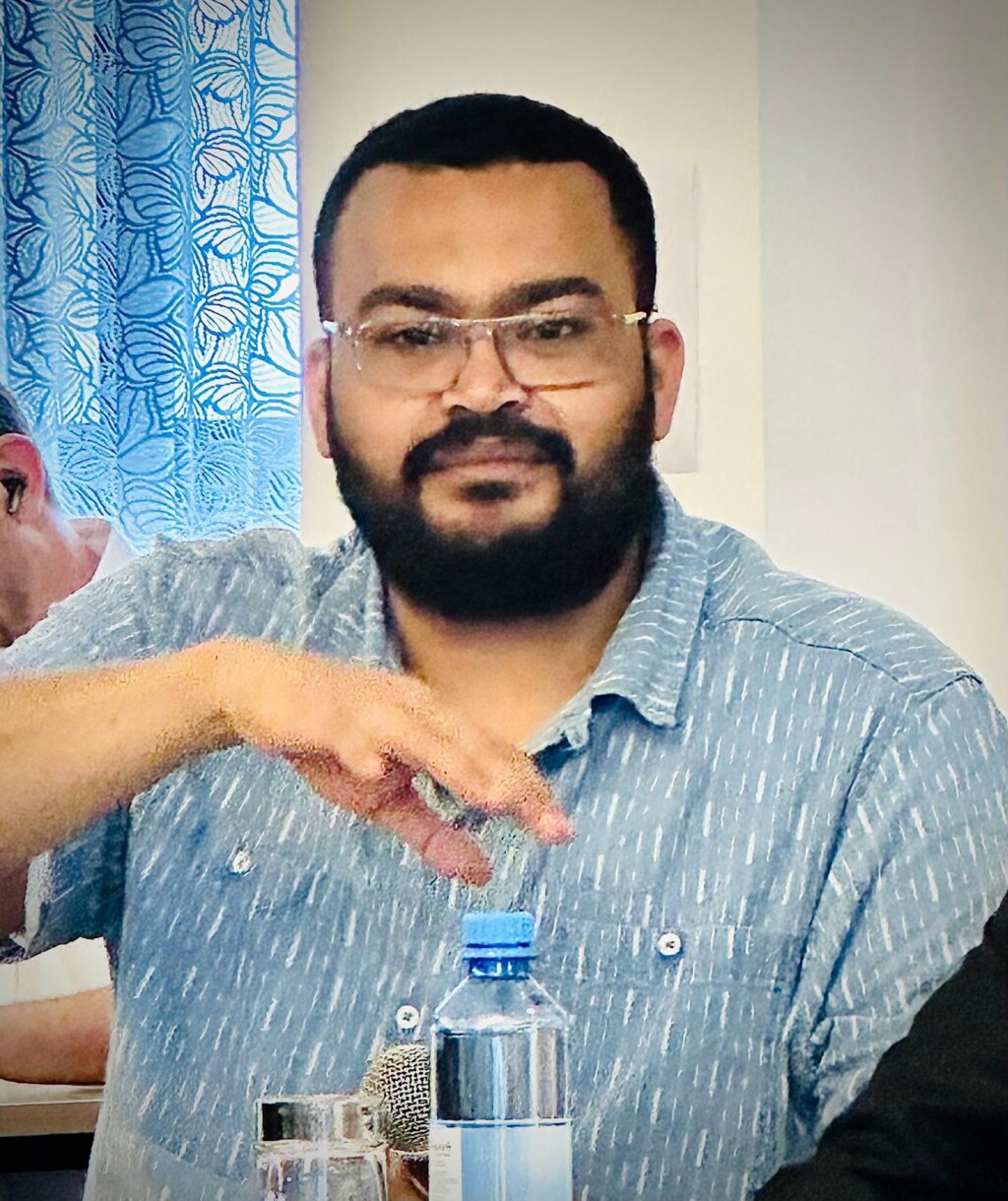
Ahmed Kadouda: Technical Advisor at the Impact Policy Group (IPG) and an expert on humanitarian and development policies and programmes, and a specialist in conflict issues, governance, and crisis response (Photo: Radio Dabanga)
The massive funding deficit in the Humanitarian Response Plan for 2025 has led to an alarming decline in food and health aid in Sudan. Major organisations such as the World Food Program and UNICEF have warned of an imminent failure in supply lines if the necessary funding is not available. Ahmed Kadouda, Technical Advisor at the Impact Policy Group (IPG), stressed that the Humanitarian Response Plan for 2025 is facing a serious funding deficit, as only 27% of the total amount requested of $4 billion has been funded, which means that 73% of humanitarian needs have not been covered, at a time when Sudan is currently experiencing the largest humanitarian crisis in the world, where there are more than 31 million people in the country are in urgent need of humanitarian assistance, according to estimates by the United Nations and international organisations.
In an interview with Radio Dabanga, programme ‘Plain Speaking’ on Saturday, Ahmed Kadouda said that this shortfall has led to an alarming decline in food and health aid, pointing out that major organisations such as the World Food Program and UNICEF have warned of an imminent failure in supply lines if the necessary funding is not available. Kadouda, who is also an expert in humanitarian and development policies and programmes, and specialises in conflict issues, governance and crisis response, pointed out that the decline in global humanitarian funding and the reduction in development contributions from donor countries have exacerbated the fragility of the situation, pointing out that Sudan has become one of the most difficult and dangerous humanitarian environments in the world.
He considers that Sudan is currently experiencing the largest humanitarian crisis in the world, noting that more than 30 million people in the country are in urgent need of humanitarian aid, according to estimates by the United Nations and international organisations.
Kadouda stresses that all the current figures remain “estimated and very conservative compared to the reality on the ground, as it is difficult to reach many areas to document the data accurately due to the deteriorating security situation,” pointing out that the reality on the ground is “much worse than the official reports.”
In the middle of this year, the International Organization for Migration (IOM) recorded more than 10.5 million internally displaced people, while UN data indicates that about 4 million refugees have crossed the border towards Chad, South Sudan, Egypt, Ethiopia and Central Africa, while fewer have arrived in some Gulf countries and Europe. He adds that “the Sudanese crisis is no longer local but has turned into a regional displacement crisis with serious humanitarian and geopolitical repercussions.”
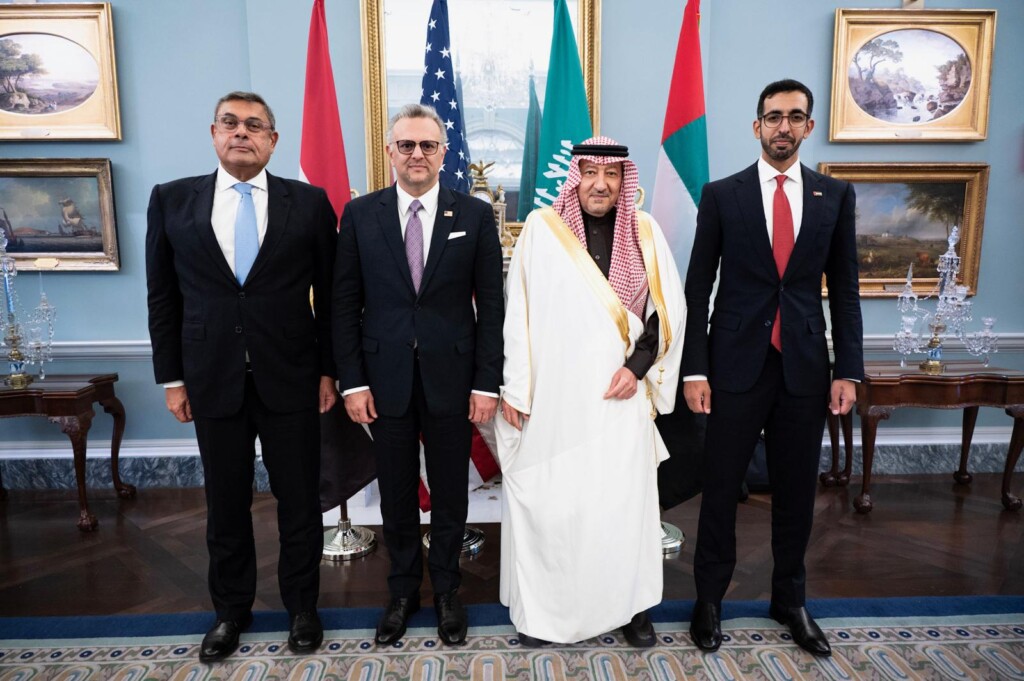
(Photo: Supplied)
The Quartet’s statement has not been translated into reality
Kadouda laments that the Quartet’s latest statement, which called for a ceasefire and allowing unhindered humanitarian access, has not yet been translated into reality, more than a month after its issuance. He adds: “There has also been no tangible change on the ground, as the city of El Fasher is still besieged, the roads are closed, and people are dying of hunger and disease in front of the eyes of the world.”
Kadouda stresses that the lack of humanitarian coordination in light of the ongoing fighting and direct shelling makes it impossible to implement any effective relief plan, pointing out that the Quartet initiative (the United States, the United Kingdom, Saudi Arabia, and the United Arab Emirates) has placed the humanitarian situation among its priorities, but it is still in the stage of statements and statements without turning into clear practical steps.
The real hope “does not lie in diplomatic statements, but in actual action by the international community to increase humanitarian funding and pressure the warring parties to sign a binding and measurable humanitarian agreement,” he says, noting that the humanitarian agreement “must include clear measures that determine the extent of progress on the ground, such as the number of open passages, the number of trucks that have entered, and the aid that has arrived in the affected areas.”
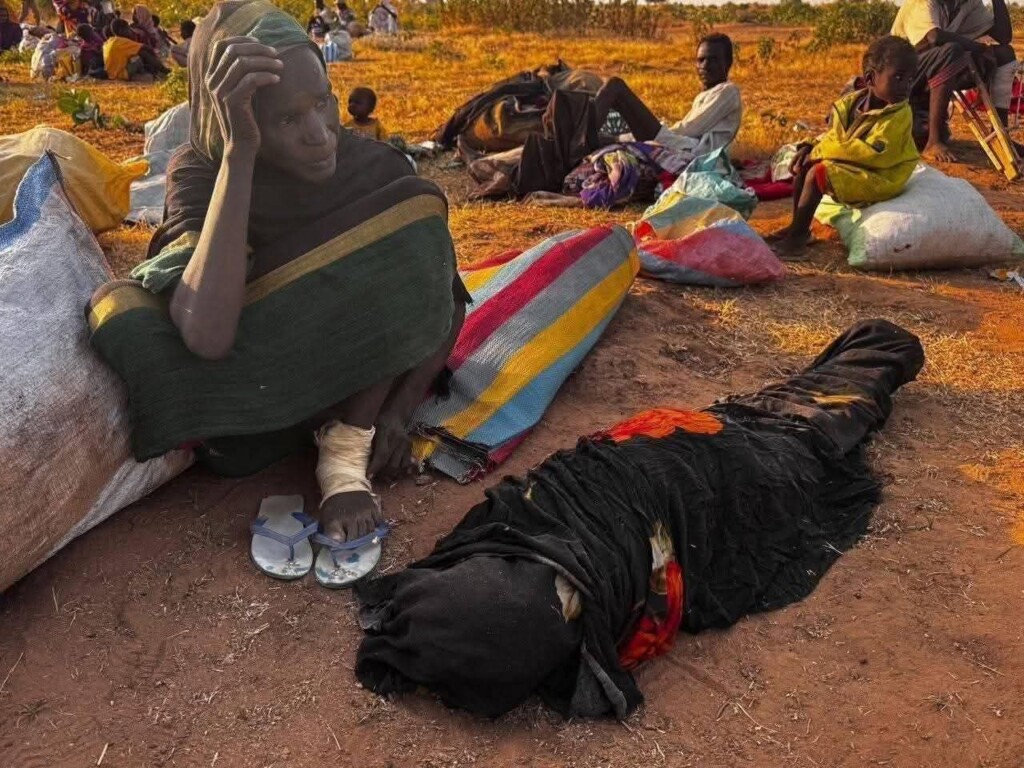
The lives of Sudanese are no less valuable than the lives of other people in the world
Kadouda stresses that the international community is required to prove that the lives of Sudanese people are no less valuable than the lives of other peoples in conflict zones around the world, adding that what is happening in Sudan should not be left to be classified as “forgotten crises”.
A commitment to opening safe corridors, ensuring protection for civilians, and injecting adequate funding could be a real turning point to save lives, especially in the hardest-hit areas such as El Fasher, Darfur and Kordofan, he says.
“No matter how long the war lasts, it will eventually end, but what will remain is the profound humanitarian impact that requires an urgent and deliberate response, and the opening of safe routes for humanitarian access is an absolute priority,” Kadouda says, adding that hundreds are dying every day due to hunger and disease in the absence of aid. Humanitarian agreements must be bound by specific outcomes, such as the proportion of trucks arriving in besieged areas and the quantities of food actually distributed on the ground.
He stresses that coordination between the authorities across Sudan is a prerequisite for facilitating the arrival of aid, noting that the Sudanese government and most armed movements have signed international treaties that oblige them to protect civilians, not to recruit children and to respect international humanitarian law.
It is time for all parties to assume their legal and moral responsibilities to save the remaining lives of civilians in Sudan, and to rehabilitate humanitarian action as a fundamental right rather than as a political tool.
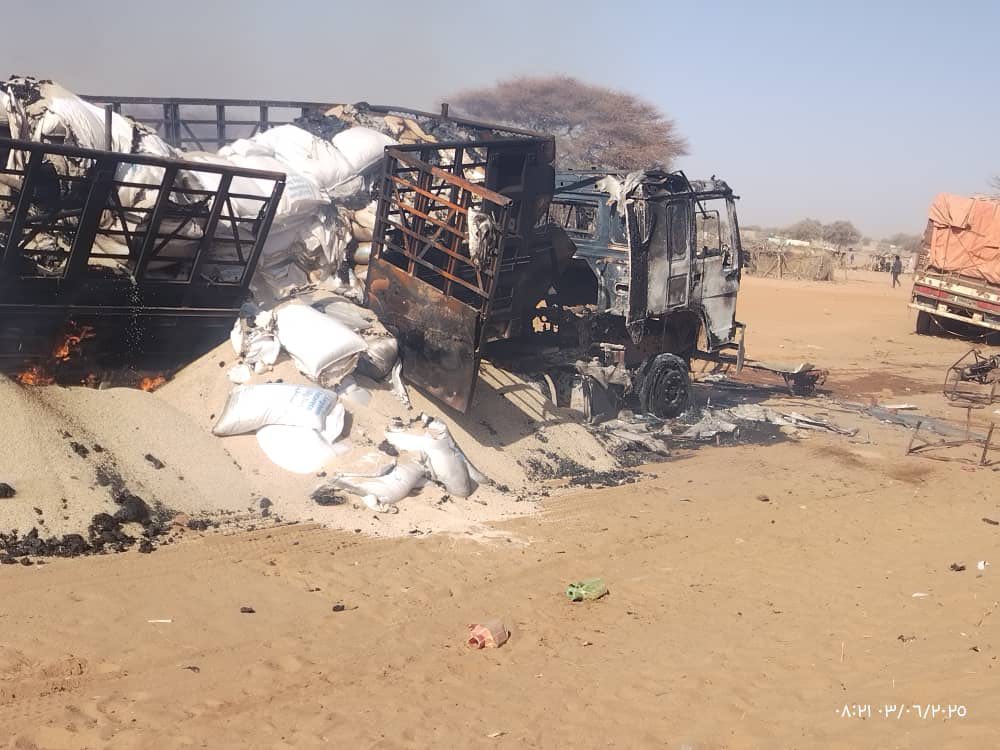
Restriction and intimidation of humanitarian organisations and workers
Kadouda speaks about the administrative restrictions imposed by both sides of the conflict, describing them as one of the biggest challenges facing the humanitarian community, pointing out that the areas under the control of the armed forces require organisations to re-register and obtain prior approvals to practice their activities, while the Rapid Support Forces impose new conditions related to the adoption of plans and budgets and changing the lists of beneficiaries.
In this context, he reveals that ACAPS alone stated in its report that only 31% of visa applications submitted by international organisations were approved last May out of 400 applications, which severely affected the ability of these organisations to implement their programmes in Sudan.
Some programmes have come to a complete halt, especially in Darfur and South Kordofan, due to funding stalled and difficult security and administrative access, he says.
He adds:( According to the statistics of the “Health Bloc”, 15 tons of medical supplies are ready to enter the conflict zones but have not yet arrived due to security and administrative restrictions, describing this as “a direct reflection of the collapse of the humanitarian access system in Sudan.”
Sudan is the worst humanitarian catastrophe
As a result, Kadouda concludes that Sudan can be described today as one of the worst humanitarian environments in the world, explaining that the size of administrative and security obstacles has exceeded all estimates.
He says that reports by the United Nations Office for the Coordination of Humanitarian Affairs (OCHA) showed that the number of incidents of obstruction of humanitarian access during the second quarter of 2025 amounted to about 80 incidents, and that 60% of these incidents were due to administrative restrictions imposed by various authorities.
Kadouda laments that a number of cities are still completely besieged, such as El Fasher, Kadugli and Dilling, as no UN convoys have arrived since April 2025, noting that the security risk is a key factor in hindering the arrival of aid, as organisations and humanitarian workers themselves have become targets of attacks and violations.
International reports have documented more than 120 attacks on health and humanitarian facilities between April and October 2025, and more than 30 humanitarian workers have been killed or injured since the war began, he says. Humanitarian organisations are currently working (with very limited teams and moving in very short time windows for fear of being attacked or looted), Kadouda says, noting that this has led to a complete paralysis in supply chains and logistical operations.
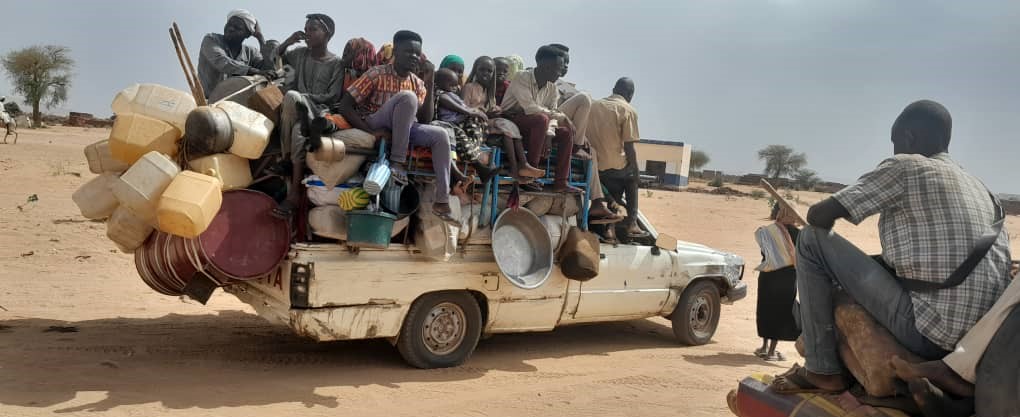
Most major roads in Sudan are closed
He pointed out that 60% of the main roads in Sudan are closed or unsafe, according to reports by the United Nations Office for the Coordination of Humanitarian Affairs (OCHA), explaining that vital corridors between cities such as El Obeid and Kadugli, and between Kordofan states and Darfur, are now almost paralysed.
The closure of civilian airports and the interruption of fuel supplies have raised transportation costs by 250% for humanitarian organisations, causing delays in the delivery of medical and food aid to millions of people in need, Kadouda says.
Poor coordination exacerbates the situation
Kadouda, attributes the deterioration of the humanitarian situation to the weak institutional coordination and conflicting procedures between the various authorities, and saw that there are no differences between the authorities in Port Sudan and the authorities in the areas under the control of the Rapid Support, pointing out that they deal with the same methodology based on tight control and deliberate obstruction of the work of humanitarian organisations.
This approach has held humanitarian work in Sudan hostage to bureaucratic procedures and political interests, paralyzing the ability of organisations to implement their vital programmes, he says.
Kadouda expresses his displeasure that Sudan currently includes four million people with disabilities and about 16 million children outside the education system, pointing out that this constitutes a humanitarian and development disaster that threatens the future of future generations, stressing at the same time that women and girls face great difficulties in accessing humanitarian aid, and that support often does not reach the most vulnerable and needy groups, considering that this represents a clear violation of the basic principles of humanitarian work. The principle of humanity, which is based on protecting life and dignity and minimising suffering, is clearly being violated in Sudan, where civilians continue to be directly targeted by the warring parties, he says.
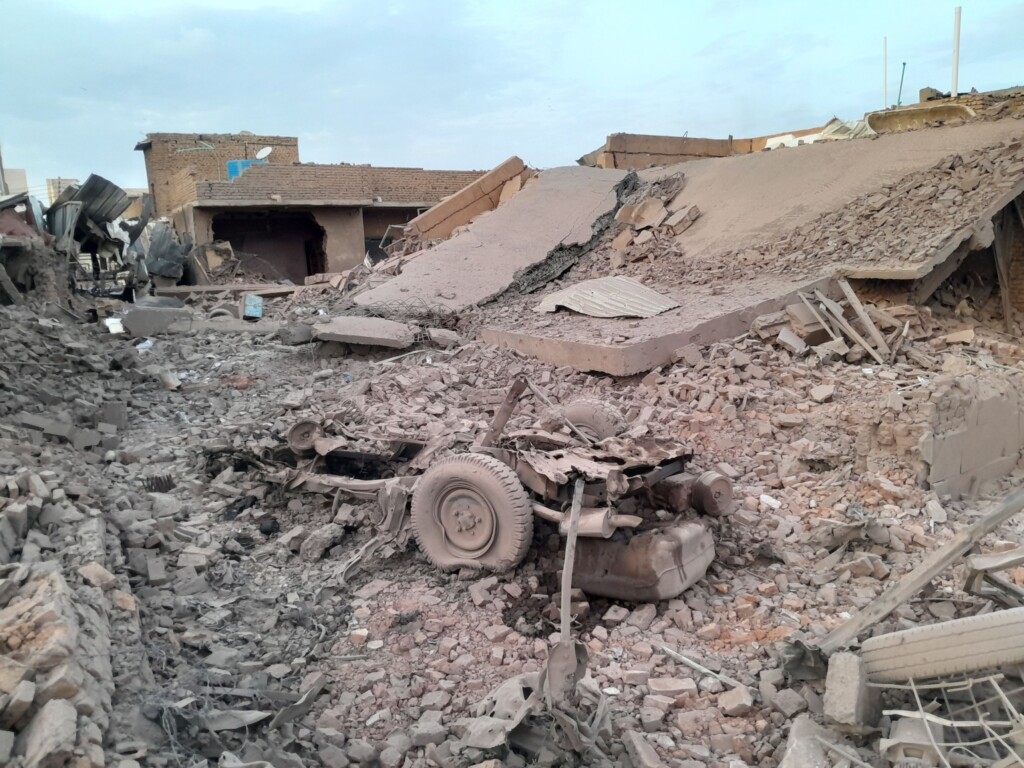
(File photo: South Belt Emergency Room)
Indiscriminate shelling of residential areas in El Fasher and Khartoum
He says that UN reports indicate that nearly 150,000 people have been killed since the outbreak of the war, in addition to increasing indiscriminate shelling of residential areas in El Fasher and Khartoum by both sides, which poses a blatant threat to the basic humanitarian principle of protecting civilians.
The recent attacks on El Fasher Hospital and the Zohour neighbourhood mosque last October are clear evidence of the RSF’s violation of the principle of humanity, he says, but at the same time noted that the armed forces have also indiscriminately targeted civilian areas, proving that civilians are paying the highest price for this war.
Neutrality, impartiality, and independence
Kadouda says that the crisis does not stop there but extends to the violation of other basic humanitarian principles such as neutrality, impartiality, and independence.
He says that the principle of neutrality obliges humanitarian organisations not to take sides with any political or military party, but stresses that the authorities in various regions of Sudan treat humanitarian work as a tool of political influence and not as a humanitarian duty, and continues, “Sometimes they prevent or allow humanitarian activities based on the political situation or the local agenda.”
He points out that between May and August 2025, the activities of about 30 humanitarian organisations, including three international organisations and three local organisations, were suspended in several areas of Sudan, considering that this reflects a clear politicisation of humanitarian work. Kadouda also touches on the principle of impartiality, which he says stipulates that aid should be distributed only according to need and without any discrimination, but he refers to reports by the Office for the Coordination of Humanitarian Affairs (OCHA) and the United Nations that confirmed that the Rapid Support Forces (RSF) imposed amendments to the lists of beneficiaries in some areas of Darfur, which he describes as a serious violation of the principles of justice and equity in the provision of humanitarian aid.
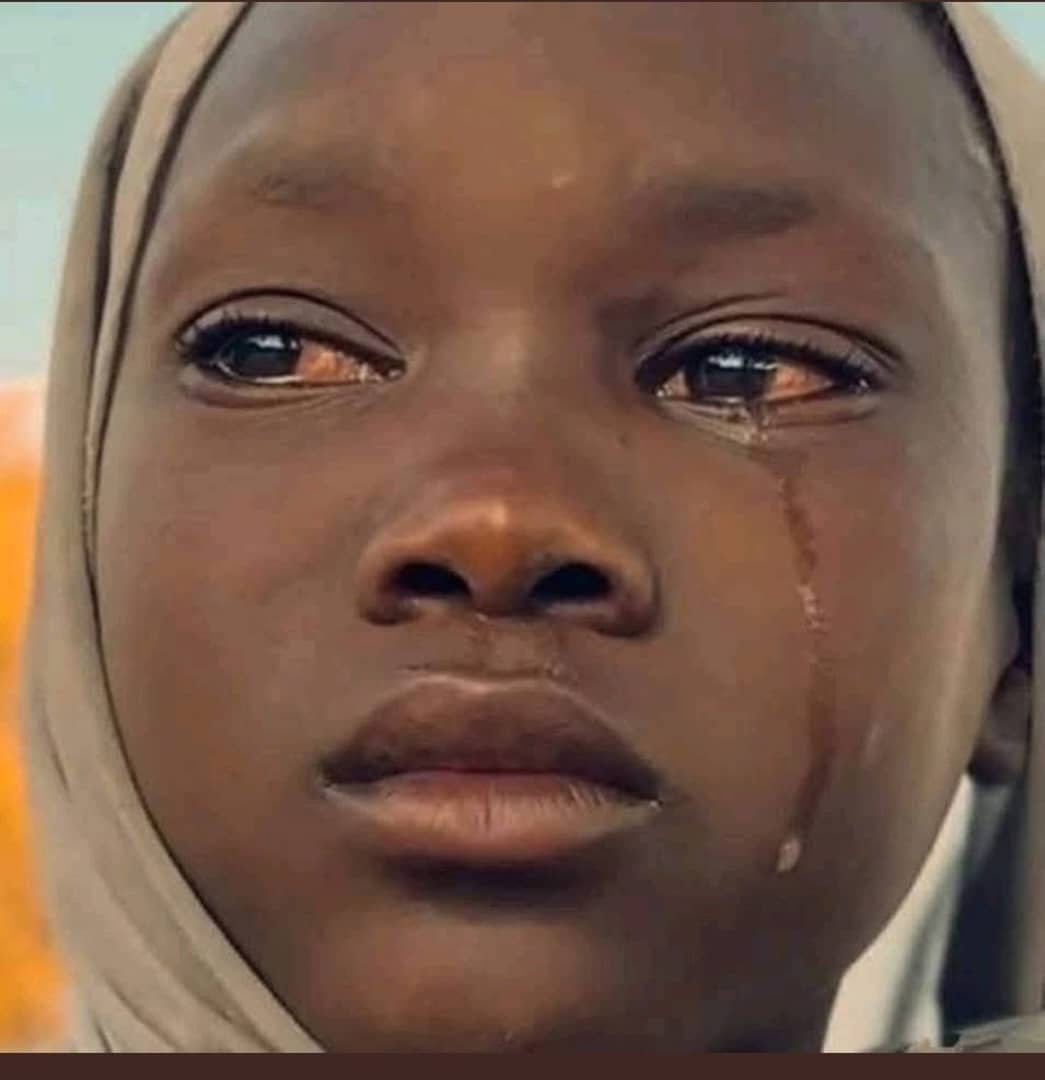
Humanitarian work under fire
With regard to the principle of independence, Kadouda stresses that it is also frequently violated, as humanitarian decisions in Sudan are often made under pressure or direction from the authorities or warring parties, rather than based on an objective assessment of people’s needs. “This reality has led to the UN implementing less than 30% of its original field lines inside Sudan, due to direct political interventions that impede its movement and humanitarian programmes, according to OCHA international reports,” he says.
He warns that the continuation of these violations of humanitarian principles undermines the credibility of humanitarian work in Sudan as a whole, calling for urgent action by the African Union, the United Nations and the international community to ensure the protection of civilians and facilitate unhindered or politicised access of aid, stressing that silence on this situation will lead the country to a humanitarian catastrophe unprecedented in its modern history.
Humanitarian action is divided between two authorities
Kadouda went on to say that humanitarian work in Sudan has become managed in a dual and divided manner between two authorities, explaining that the Sudanese army and the “government of Port Sudan” oversee humanitarian work through the Humanitarian Aid Commission, while the Sudanese Relief and Humanitarian Operations Agency oversees the areas under the control of the Rapid Support Forces.
This institutional divide forced independent humanitarian organisations to operate under the supervision of conflicting institutions, undermining the independence of humanitarian action and making coordination nearly impossible. Kadouda says that humanitarian action is supposed to be based on the principle of coordination and integration between all parties to ensure that aid reaches those in need as soon as possible, but this principle is completely absent in the current Sudanese reality, pointing out that the main priority today should be to ensure the arrival of humanitarian supplies in the fields of health and nutrition, but this is not actually happening.
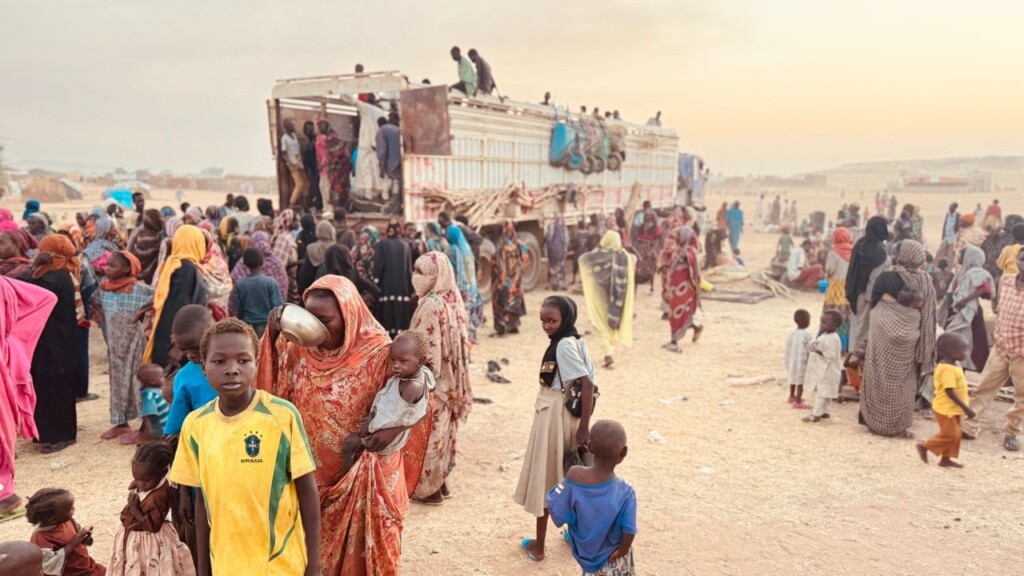
Restrictions and obstacles halt programmes in Darfur
In the interview, Kadouda says that a number of vital programmes have been completely stopped, including the nutrition programmes that were in place in Darfur states and some other states, due to the restrictions and obstacles placed in the work of international institutions.
He adds: “Even the areas under the control of the Sudan Liberation Movement (SLM) led by Abdul Wahid Mohamed Nur suffer from additional humanitarian access difficulties, although international organisations have been dealing with these areas for many years before the outbreak of the current war on April 15, 2023, and have experience working there due to the conflict that has been going on for decades.”
Humanitarian access to these areas has become very limited, he says, exacerbating the situation of thousands of displaced families, especially in North Darfur and Tawila states, where displacement is increasing daily as a result of the ongoing fighting and shelling.
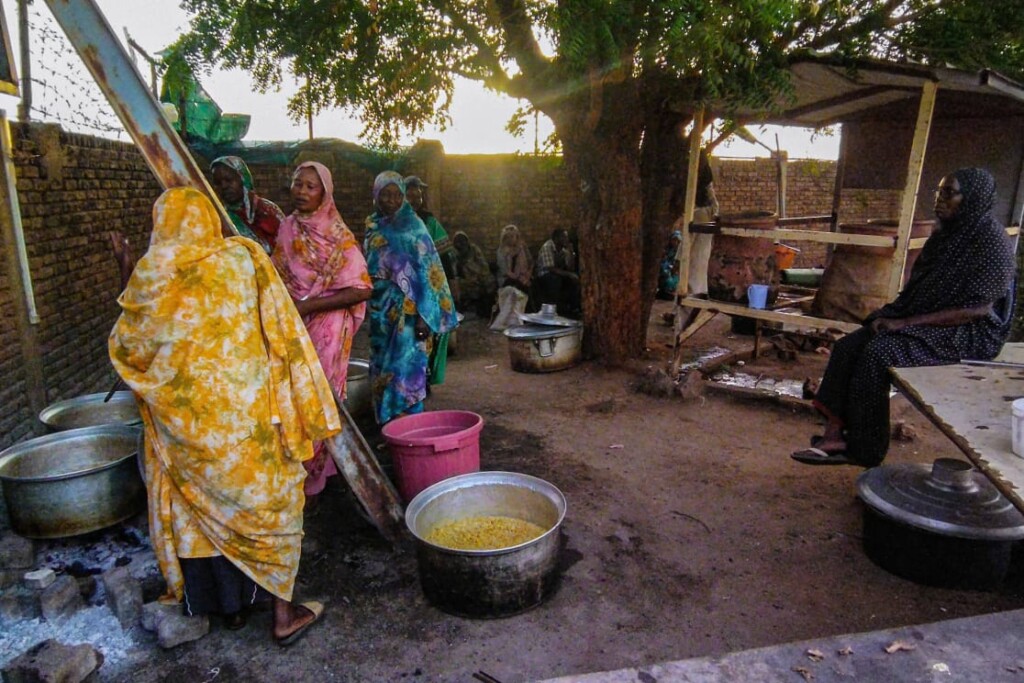
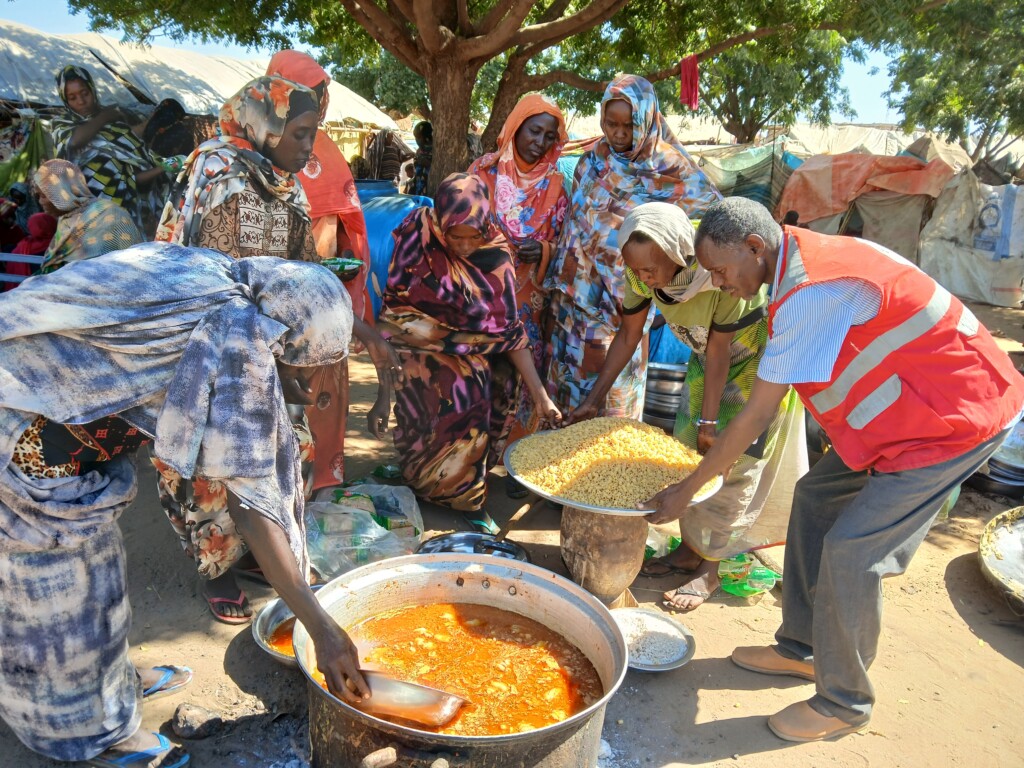
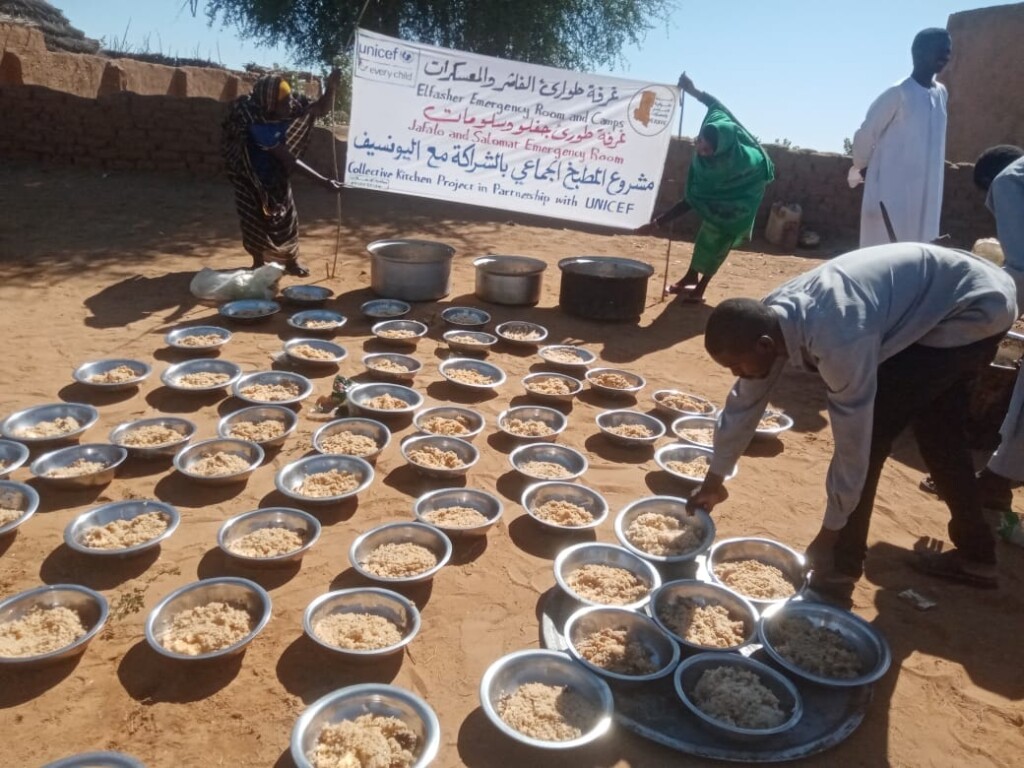







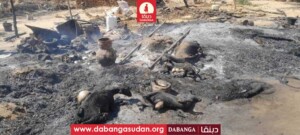
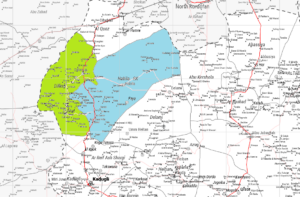


 and then
and then